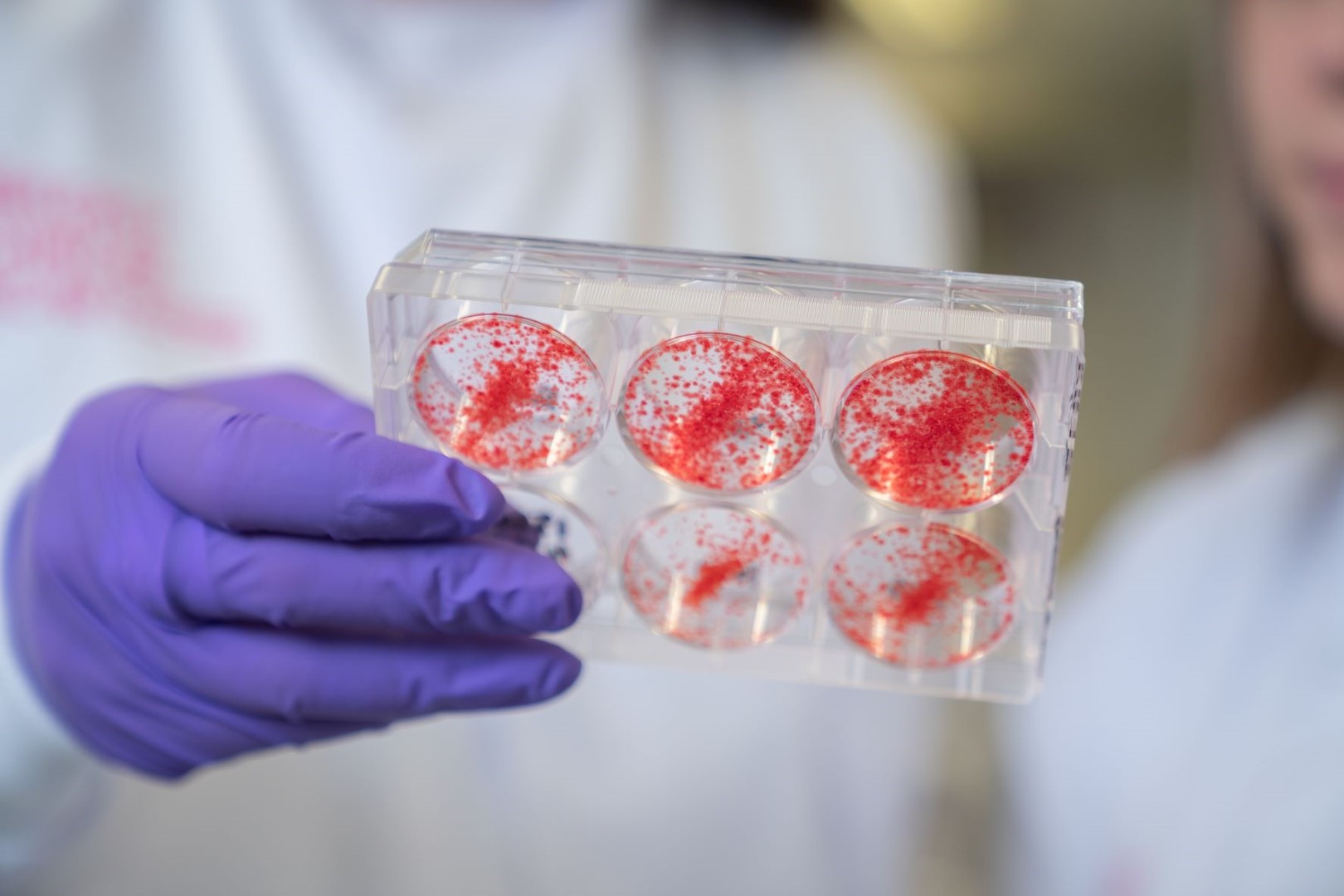Researchers have discovered new weaknesses in a special type of cell that supports cancer cells to grow and spread around the body.
Researchers, part-funded by Breast Cancer Now, have discovered new weaknesses in a special type of cell that can support cancer cells to grow and spread around the body.
They discovered that these cells, called cancer-associated fibroblasts (CAFs), rely on two key molecules to make a ‘scaffold’ that can help cancer be more aggressive.
The researchers hope that by better understanding CAFs and this scaffold they produce, we can develop new targets to treat the disease.

Understanding CAFs
Breast tumours are made up of a collection of different types of cells. Some of those cells are called cancer-associated fibroblasts, or CAFs for short. They are found in large numbers inside breast tumours and can help breast cancer cells grow and move around.
Previously, scientists have found that CAFs produce a material that surrounds cells. This material, which is rich in a protein called collagen, surrounds cells like a ‘scaffold’. And, scientists have found that it can help cancer grow and spread more quickly.
Professor Sara Zanivan at the Beatson Institute in Glasgow wanted to better understand how CAFs produce this scaffold to see if they could find a new target for treating breast cancer.
Analyising the scaffold
In their research, Sara and her team discovered that a molecule called proline is a key component of the collagen scaffold made by CAFs.
Proline is made by a protein called PYCR1. And, when the researchers stopped PYCR1 from working, they found that CAFs stopped producing the collagen structure. But, when proline was added again, CAFs continued to make this collagen scaffold.
These results show that CAFs need proline to produce the collagen structure that supports cancer growth and spread. And, that PYCR1 plays an important role in this process.
A potential new treatment
The team hope that by identifying the role of PYCR1 and proline, they have found a potential new target to treat breast cancer. However, scientists will need to do more research to better understand how these two molecules could be targeted. And, what what drugs they could use to target them.
Dr Kotryna Temcinaite, our Senior Research Communications Manager said: “Identifying this weakness in cancer-associated fibroblasts and the collagen structure they produce is a vital step to finding ways to prevent them from supporting the growth and spread of breast cancer.
This exciting early investigation looking at the mechanisms by which CAFs support breast cancer cells could lead to new much-needed treatments for breast cancer.”
This study was published in the journal Nature Metabolism and funded by Breast Cancer Now and Cancer Research UK.
These discoveries are important steps towards the best possible treatments and support for people affected by the disease.
Whatever you’re going through. Whoever you are. We’re here.